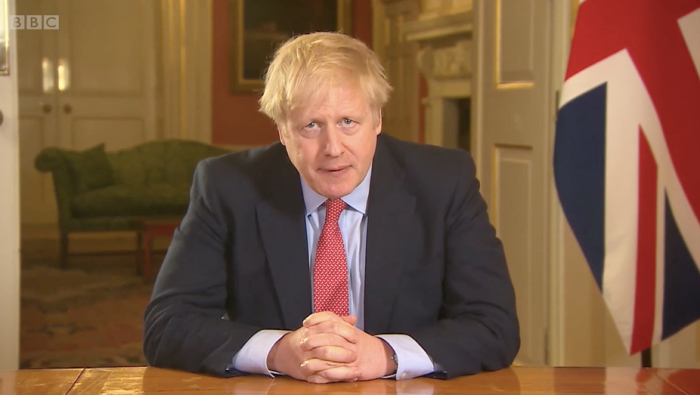A failure by world leaders to commit to tackling the climate emergency at the Cop26 summit in Glasgow could prompt “very difficult geopolitical events” including mass migration and global competition for food and water, Boris Johnson has said.
Speaking before the start of a gathering of leaders from the G20 industrialised nations in Rome, where he will push for countries to arrive in Glasgow with fixed plans to cut emissions, Johnson said the chances of success hung in the balance.
In a round of broadcast interviews in Rome, he was reminded that he had said in September that there was a six out of 10 probability of the Cop summit producing the necessary action, and asked what he now thought.
“I’d say they’re about the same,” he told the BBC. “I think that everybody needs to focus. What the UK has been trying to do is take the abstract concepts of net zero that we talked about in Paris six years ago, and to turn them into hard, sharp deliverables in terms of reducing coal use, reducing the use of internal combustion engines, planting millions of trees and getting the cash that the world needs to finance green technology.’’
Speaking to reporters on the way to Rome on Friday, Johnson used the example of the collapse of the Roman empire to highlight what he said was the possibility of runaway climate change bringing a decline in civilisation.
Questioned about the stakes for Cop26 in Rome, where he was interviewed next to the Coliseum, Johnson reiterated his warnings about the consequences for the globe.
“If you increase the temperatures of the planet by four degrees or more, as they are predicted to do remorselessly, you’ll have seen the graphs, then you produce these really very difficult geopolitical events,” he told Channel 4 News.
“You produce shortages, you produce desertification, habitat loss, movements, contests for water, for food, huge movements of peoples. Those are things that are going to be politically very, very difficult to control.
“When the Roman empire fell, it was largely as a result of uncontrolled immigration. The empire could no longer control its borders, people came in from the east, all over the place, and we went into a dark ages, Europe went into a dark ages that lasted a very long time. The point of that is to say it can happen again. People should not be so conceited as to imagine that history is a one-way ratchet.
“Unless you can make sure next week at Cop in Glasgow that we keep alive this prospect of restricting the growth in the temperature of the planet then we really face a real problem for humanity.”
Johnson has faced criticism this week for his own inaction over tackling emissions, with Wednesday’s autumn budget again froze fuel duty, and cut levies on shorter, domestic flights, but he arrived in Rome bearing a blunt message for fellow G20 leaders.
“Too many countries are still doing too little,” the prime minister’s spokesperson said, setting out the message that will be delivered.
“As the countries with the greatest historic and modern contributions to global warming, who have built their economies on the backs of burning dirty fossil fuels, the G20 holds the key to unlocking global action and making the progress we so badly need to live up to our commitments.”
Asked on Saturday whether the cut to passenger duty had undermined his message, Johnson rejected this.
“We increased air passenger duty for long-haul flights, 96% of CO2 emissions come from long haul flights,” he told Channel 4 News. “What we will do is ensuring we have proper connectivity in the islands of the United Kingdom, which is an entirely sensible thing to do.”
In Rome, Johnson will hold bilateral talks with Scott Morrison, the Australian prime minister, whose own record on reducing emissions has been heavily criticised, as well as Canada’s Justin Trudeau and Italy’s Mario Draghi.
Johnson is not due to hold a one-on-one meeting with Joe Biden, the US president, who will be at the G20 and Cop26, although the pair will attend a meeting in Rome about the Iran nuclear deal.
Also attending this meeting will be the French president, Emmanuel Macron, and the German chancellor, Angela Merkel, who is expected to bring along her likely successor, Olaf Scholz, currently the finance minister.
More about:















































